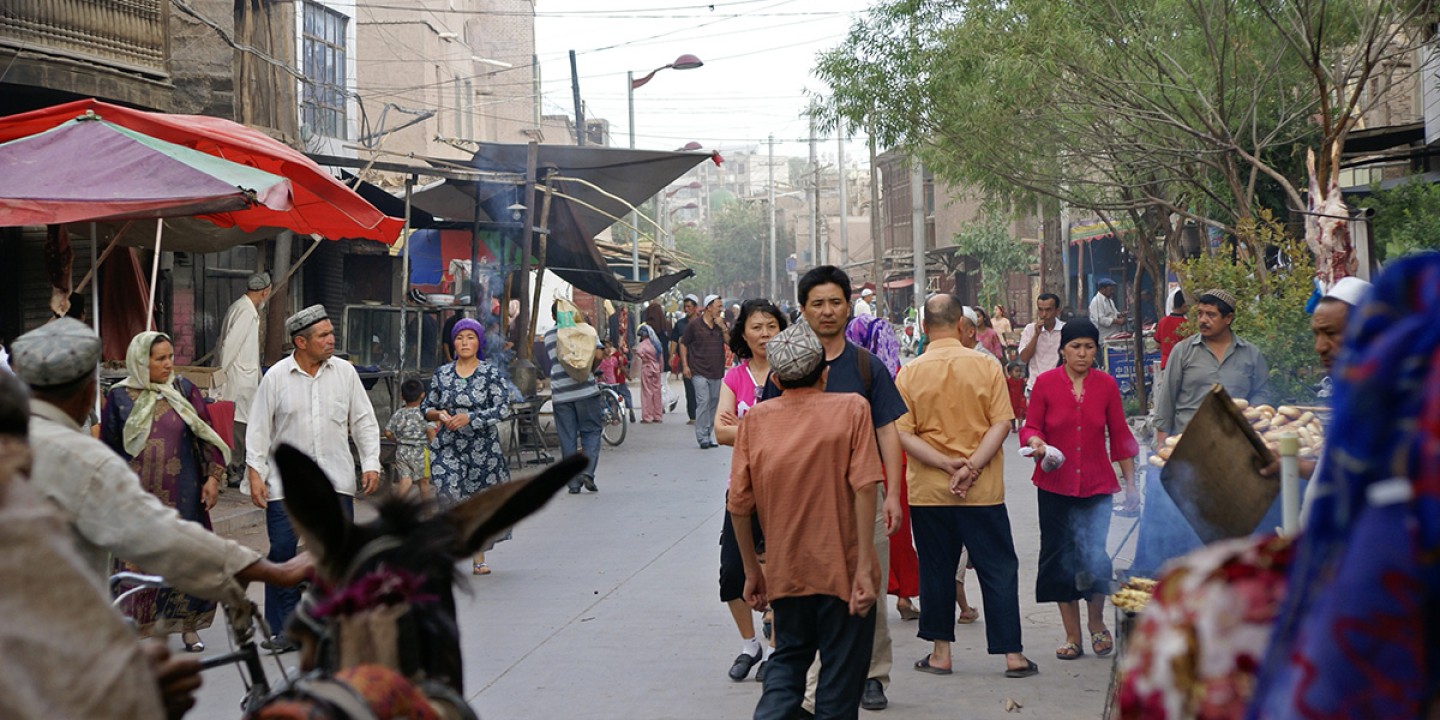Why should we care about what’s happening to the Uyghurs?
Chamath Palihapitiya’s question is worth taking seriously.

In late January, billionaire podcaster Chamath Palihapitiya stirred up controversy when he declared that “nobody cares about what’s happening to the Uyghurs,” the mostly Muslim ethnic group in northeast China that has been targeted since 2017 with mass imprisonment, reeducation, forced labor, rape, torture, and sterilization. “Of all the things that I care about, it is below my line,” Palihapitiya admitted. Americans should solve the injustices in our own country, he said, before worrying about abuses on the other side of the world.
The backlash was swift, prompting Palihapitiya to admit that human rights abuses matter wherever they occur. But his underlying question is worth taking seriously. There are so many problems in the world. Why should we care about what’s happening to the Uyghurs?
The kind of willful ignorance that Palihapitiya endorses makes some sense from a utilitarian perspective. Most of us don’t have unlimited resources to marshal against injustice, and we typically have the greatest ability to help those who live closest to us. It can feel futile to expend mental and emotional energy on a problem that is large-scale and distant from our everyday lives. After all, caring about someone’s suffering isn’t the same as relieving it.
But from a Christian perspective, caring about the suffering of strangers has inherent value. It can broaden our vision of whose lives matter. It can increase our capacity for empathy. It can also sharpen our ability to recognize evil. Once we see evil, we can name it and denounce it, building solidarity with others who are working against it.
And what’s happening to the Uyghurs is undeniably evil. It constitutes genocide and crimes against humanity, as both President Biden and former president Donald Trump have affirmed. In December, the Senate passed the Uyghur Forced Labor Prevention Act, which prohibits trade with China’s Xinjiang province. The vote was unanimous.
The persecution of the Uyghurs is also an attack on religious freedom. Not only are the Uyghurs prohibited from practicing their faith, they are being targeted specifically because of it. China is not known for its tolerance of any faith, but trying to wipe out an entire religious tradition is an especially egregious crime against the basic human right to live faithfully and worship in freedom. What’s happening to the Uyghurs shows the extent to which authoritarian regimes see religious values as a threat.
The power of religion against tyranny is another reason for us to care about the Uyghurs. Caring can lead to speaking out, and words are often especially visible when they come from people of faith and are backed by the weight of religious institutions. Christians believe in the power of words to shape reality—whether they’re spoken on a podcast by a famous billionaire, proclaimed in a sermon, or published by a religious body. It doesn’t take much to speak loudly and repeatedly against China’s abuses of the Uyghurs. Wherever those words end up finding an audience, they are likely to provoke more conversation and more care.
A version of this article appears in the print edition under the title “Why should we care?”





